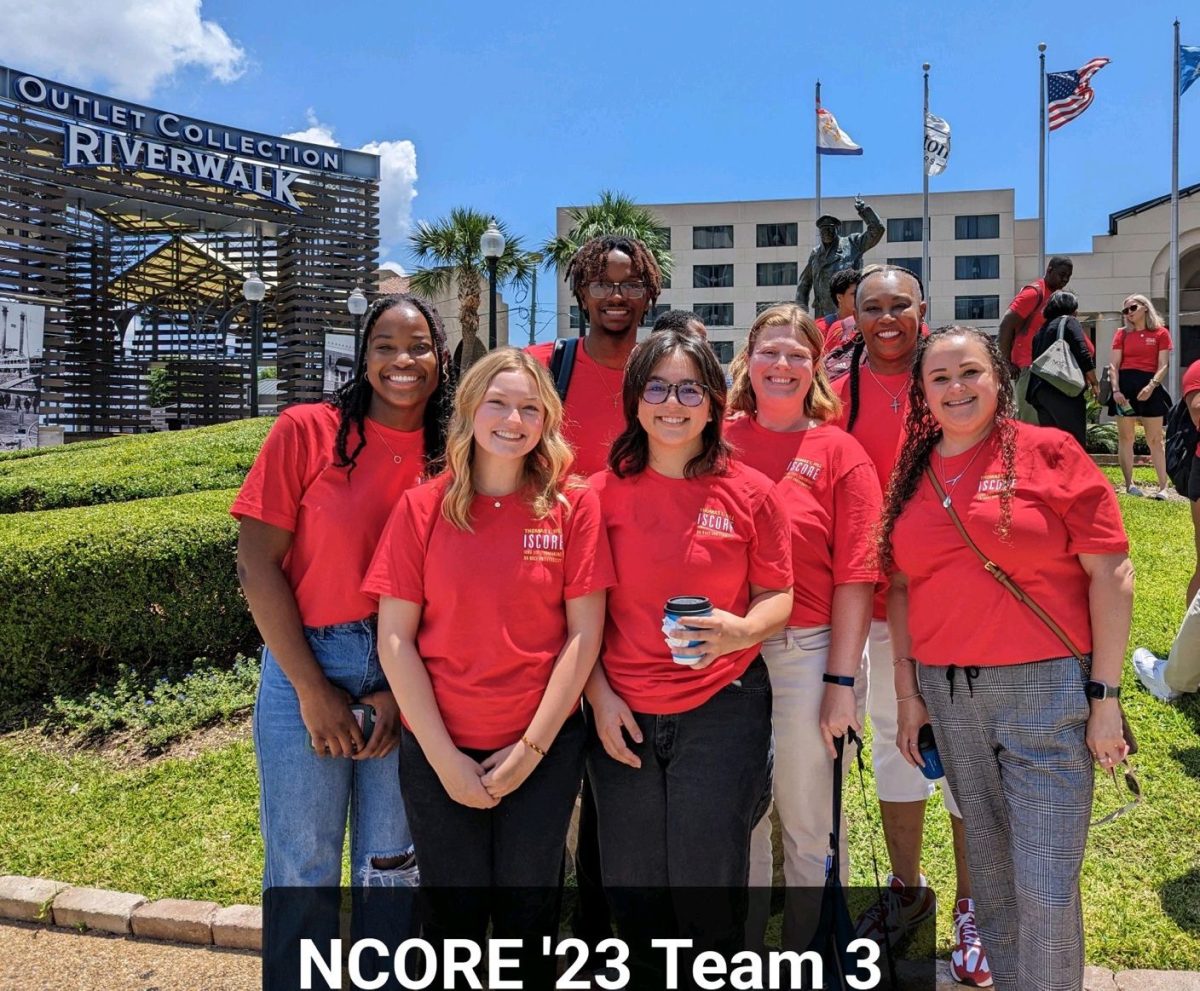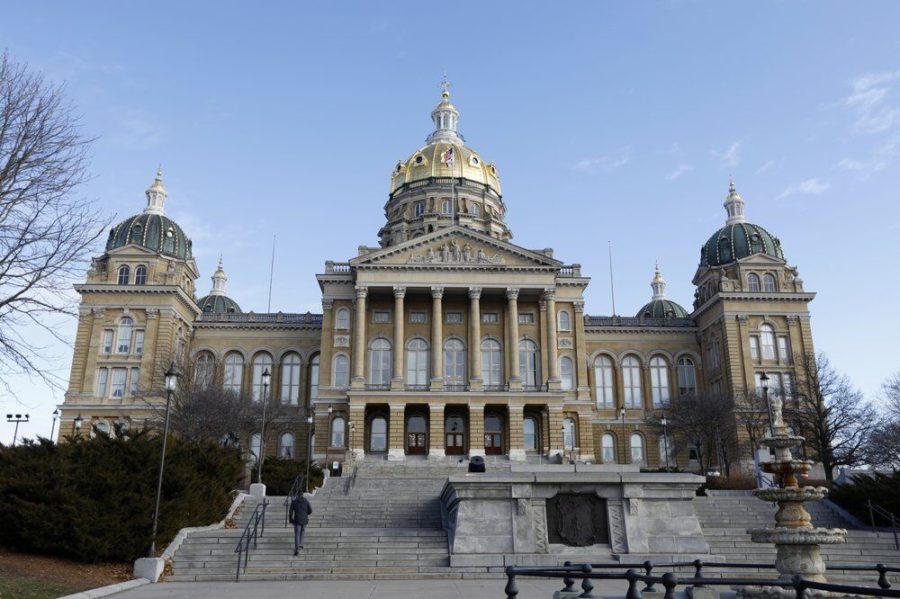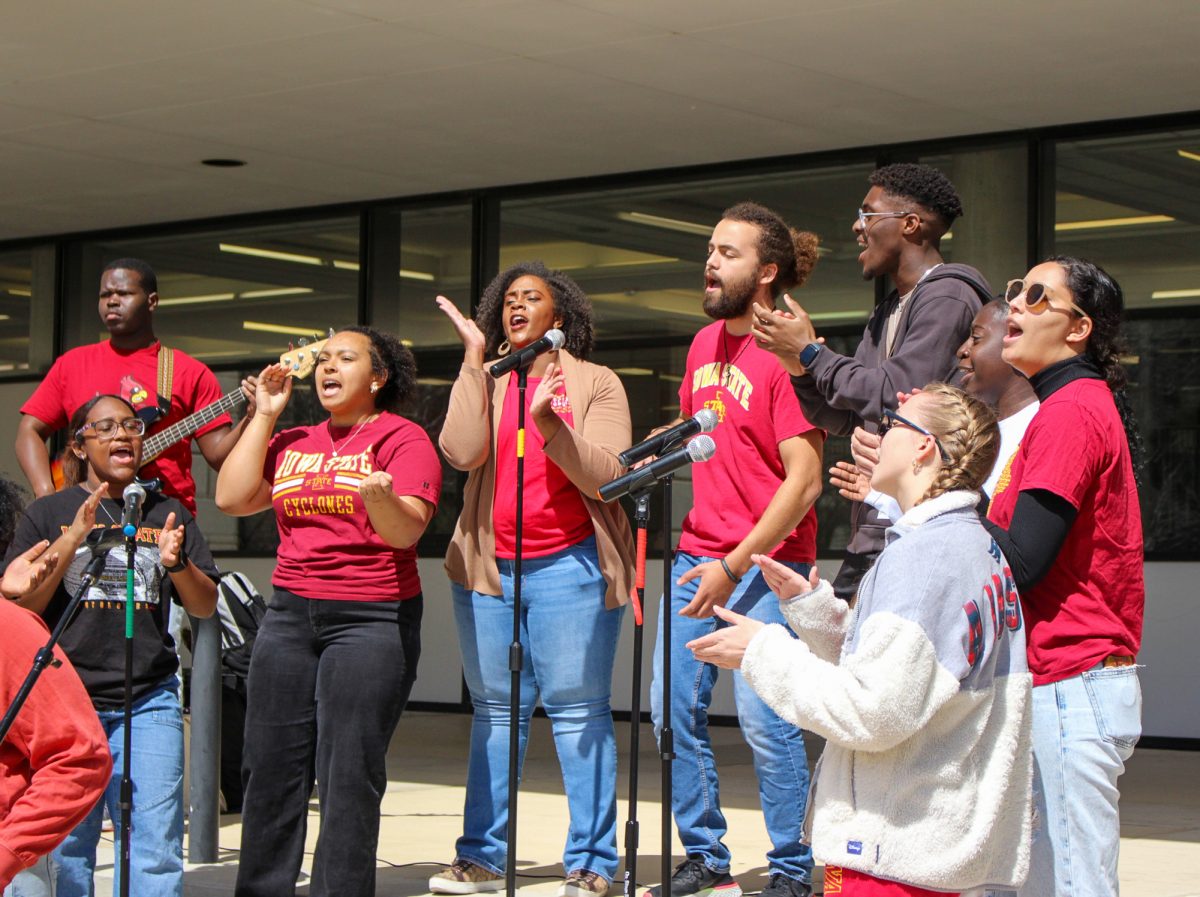Student scholars have been preparing research for months to present at the 2024 Iowa State Conference on Race and Ethnicity (ISCORE), championing diverse voices and marginalized experiences through year-long group project presentations.
According to the Division of Student Affairs, ISCORE seeks to bring the more salient ideas and concepts of the National Conference on Race and Ethnicity (NCORE) to Iowa State University to:
Develop and enhance Iowa State student, faculty and staff awareness of racial and ethnic issues in higher education around the country.
Continue to promote addressing multiculturalism in the classroom and in American higher education.
Make information regarding issues of race and ethnicity accessible to the entire university community and support the university’s ongoing efforts.
ISCORE is an annual two-day event, taking place Wednesday and Thursday, and including a half-day pre-conference for professional staff and a full-day conference open to the community. Each spring, students present their research to the conference after attending NCORE, a five-day national conference, and completing the fall course component.
Twenty Iowa State students attend NCORE each summer. This year, the 35th Annual National Conference on Race & Ethnicity in Higher Education was held in New Orleans.
“[NCORE] was such an amazing, broad cultural experience for me, and I learned so many different things about different topics that I was ignorant of,” Odosasere Amadasun, a 2024 ISCORE scholar and a junior in sociology, said. “[For] me personally, it was very, very important for me to go to sessions that weren’t based around an identity that I did not hold, about those different cultures and identities that I maybe didn’t know about and taking the time to try and learn about it was very very cool.”
Danielle Nagaito, a 2024 ISCORE scholar and a senior in biology, said as a woman of color, she felt NCORE and ISCORE gave her the opportunity to hear others’ personal experiences, which she could relate to.
“I felt like I was in a room of people who understood me, that’s what I would say NCORE was, I was in a room of people who understood me who went through similar experiences, but they didn’t allow those experiences to set them back,” Nagaito said.
Nagaito’s project group will be presenting their project, “Breaking Down Hegemonic Standards: Identity and Value Through Hair,” at ISCORE Thursday. Nagaito said the group’s research surrounds the effect of hair in different cultures and its varying cultural significance.
“I think hair is something that some people just see, like, ‘Oh, it’s just hair, it’s whatever’,” Nagaito said. “But in particular cultures, which we chose three particular cultures to focus on, we’re going to talk about the significance of hair in those cultures and how [hair] has been used to dehumanize people in the past, and even now, and the effects of that with laws, legislation, and all of that, that are still present today.”
Nagaito said her experience with NCORE/ISCORE has helped her in school as well as in her personal growth.
“We talk a lot in school about being the only person of color in the room, and in a lot of my classes, that’s the case, I feel like I have unique [experiences] people can’t really relate to,” Nagaito said. “And so it’s easy to feel like I’m an outlier or like I don’t belong, but NCORE really emphasized that when you walk into a room, walk into it with your head high, walk in there like you belong there.”
Ashley Garrin, a senior programs specialist and the NCORE-ISCORE director of student engagement and leadership, leads the research course for student scholars, U ST 321 Race and Ethnicity in the U.S.
Students bring ideas from the national conference to the classroom in the fall, Garrin said, where they explore current issues, personal identities and their own experience with race.
“That class was really, really influential and really, really helpful to us because we took all that we learned in NCORE and we implemented it and we took it and said, ‘Okay, how can we use this?’” Amadasun said.
Students attending NCORE are placed in groups prior to their departure, and keep those groups throughout the course until presenting at ISCORE the following spring.
“[The students’] learning begins with those pre departure meetings, and so even though it is a fall semester course, they’ve started learning the spring before they learned that in NCORE and they learn all the way up to ISCORE day,” Garrin said. “So it is kind of like a holistic experience, as it goes outside the boundaries of the walls of our classroom.”
Amadasun said she was excited when she first learned about NCORE/ISCORE, as she did not have much prior knowledge on topics of race and ethnicity.
“[That was] partially because of a lack of education on my part,” Amadasun said. “Also, partially because of the place where I grew up, it wasn’t really an important topic or a topic of focus.”
As someone who came from spaces where she did not see much of herself, Amadasun said she felt the urge to make her voice heard.
“[I had] that feeling that there are people who are going to come after me who are going to feel the same way I do,” Amadasun said. “Let me show them that we still are allowed to have a voice here. Let me be the example for them that even though it came from somewhere where we didn’t have a voice, we can now have a voice.”
Amadasun’s group will be presenting their project at ISCORE on Thursday, titled “The Importance of Diversity, Equity and Inclusion in Higher Education” and the surrounding effects on marginalized and minority students from the recent Diversity, Equity and Inclusion (DEI) directives issued by the Board of Regents.
The presentation will include questions from a student panel representing students of different identities, which Amadasun’s group will answer in front of the audience.
“We hope to hear from those marginalized students, so we have a panel of students of different identities, races and others who are in those different programs that are not necessarily [DEI] focused but maybe that’s a reason they joined or DEI is an important initiative in those clubs or organizations that they’re a part of,” Amadasun said.
Amadasun said the thought of other students not having an opportunity to attend NCORE and ISCORE due to DEI program changes from Regent recommendations drove her to choose this presentation topic.
“These DEI programs around Iowa State, they’re so influential and amazing to students of color, where if they weren’t there, things could be a lot different,” Amadasun said. “It was very, very important for me to talk about it because of how it’s affected me personally, and I know it could affect current and prospective students as well.”
Lyric Sellers, a 2024 ISCORE scholar in Amadasun’s project group and a sophomore in communication studies, said she is excited for ISCORE but was nervous at first – not to present, but due to anticipation surrounding responses to the topic.
“But I’m really glad that we focused on student experiences, because it makes me feel a lot more competent in our ability to respond to people,” Sellers said. “And I just ultimately hope people are receptive to the message rather than going in with their preconceived biases, because it does take a lot of courage and vulnerability for students to come up and talk about it. Especially if they’re constantly met with resistance.”
Sellers said the biggest focus of her group’s research and presentation is to, through a panel discussion, highlight the impact these program changes will have on students.
Sellers said when she first came to Iowa State, she struggled to find a community and combatted feelings of isolation. Experiencing NCORE and ISCORE gave her a close-knit support network to surround herself with.
“I think the experience, [and] also going to NCORE, taught me a lot about how I could advocate for things here at Iowa State because there are other states and other universities that are doing great work,” Sellers said. “And so I think it kind of just raised the bar for me as far as what I feel I could accomplish, or what I feel that me and other students could do.”
Nagaito said her experiences with both NCORE and ISCORE continue to remind her that there are people on campus who care about creating change.
“Especially in an environment where it can be kind of tricky, and it can be kind of criminalizing for yourself to speak up and be that person who wants to see change,” Nagaito said, “Just recognizing that it’s something that’s necessary. I think it’s not right for us to just witness all these things, all these injustices and let them pass by and brush them off because they affect us, and not only do they affect people who are directly affected by the injustice, but I feel like it sets the whole tone of the university.”














